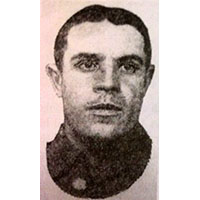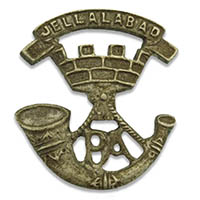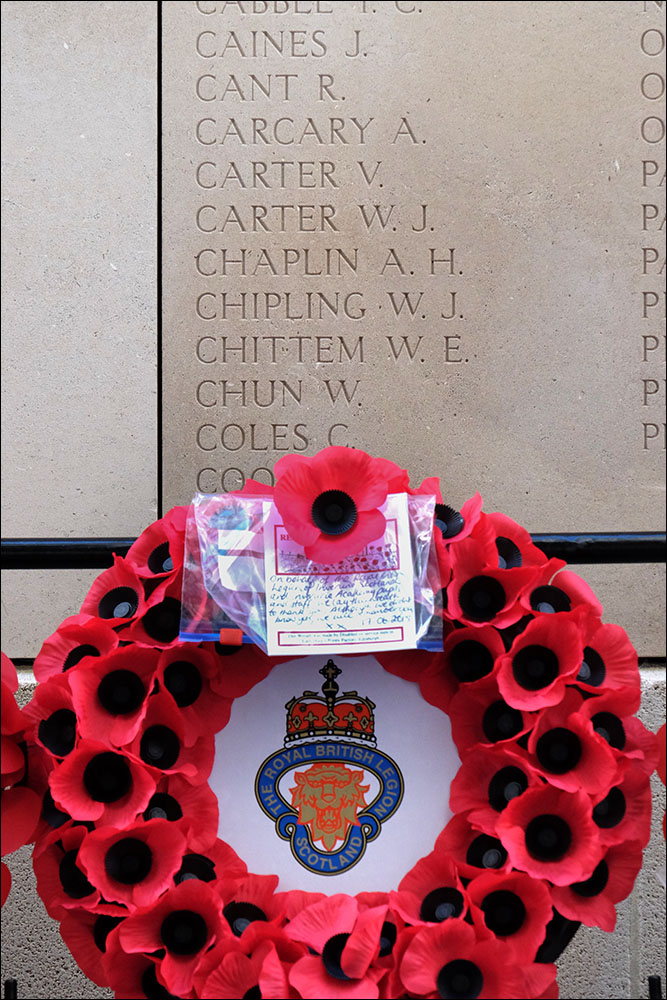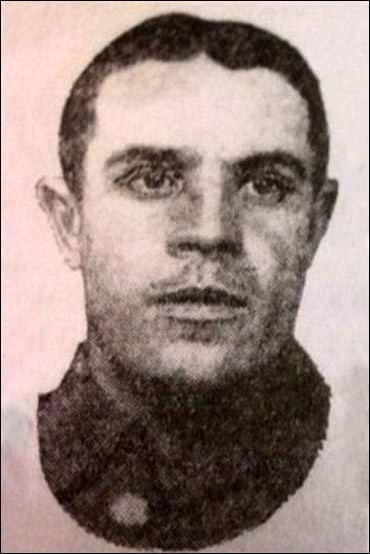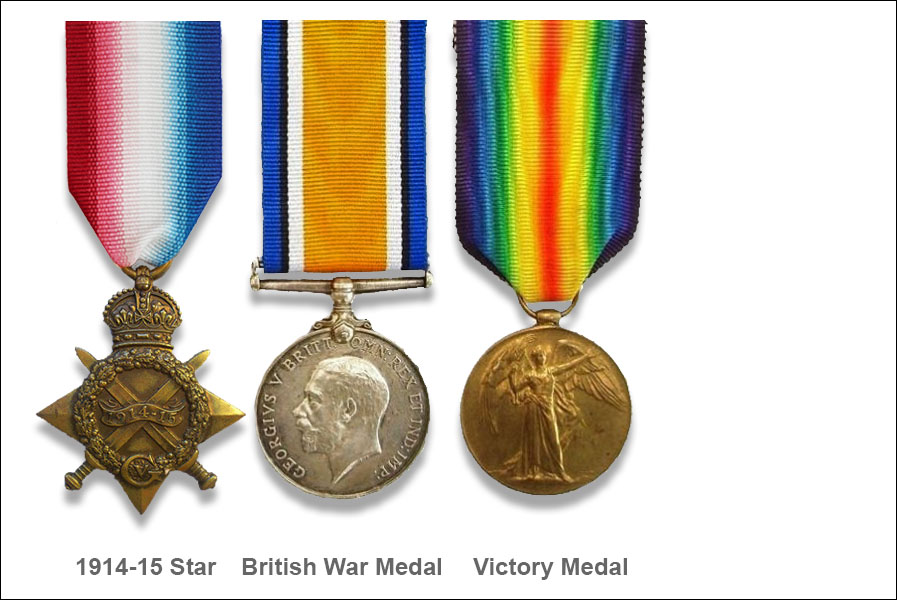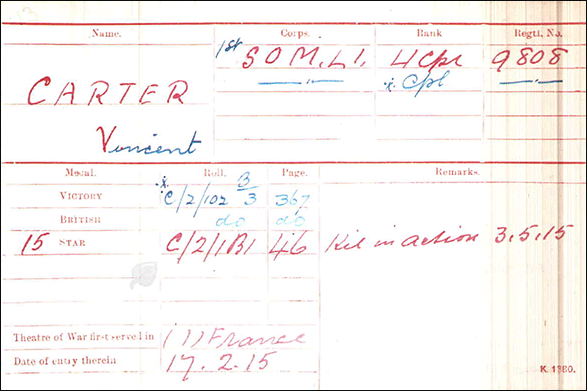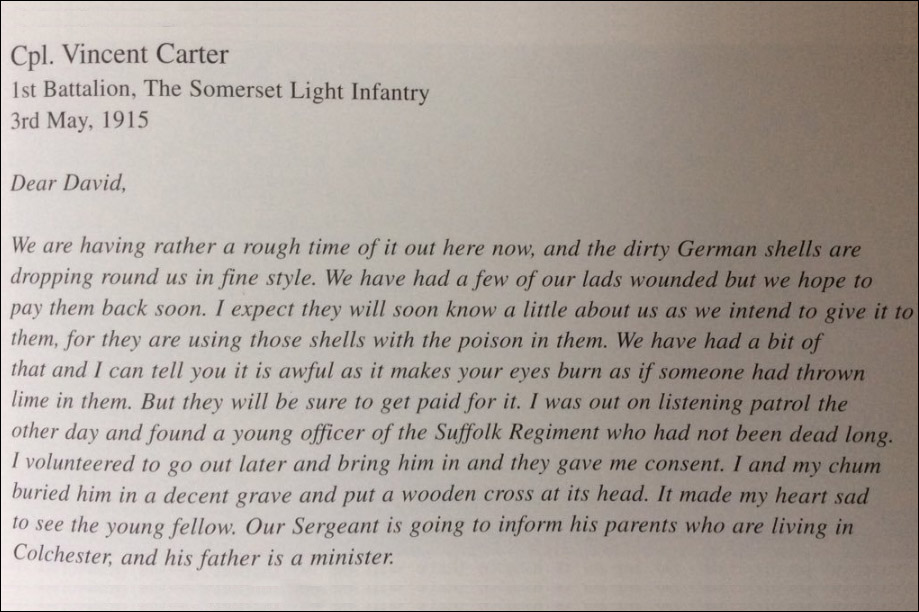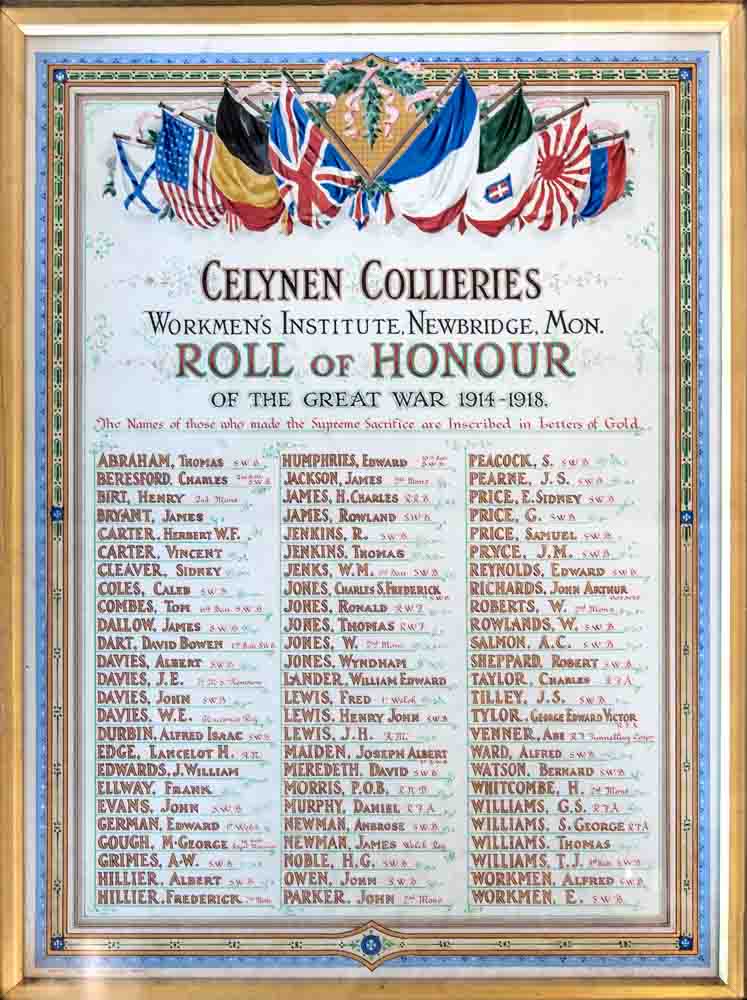| Unit/Regiment | Somerset Light Infantry |
| Battalion | 1st |
| Rank | Corporal |
| Service Number | 9808 |
Theatre of War first served in | (1) France |
| Date of entry therein | 17/02/1915 |
| Age at Death | 24 |
| Date of Death | 03/05/1915 |
| Burial/Memorial Reference | Ypres (Menin Gate) Memorial |
| CWGC Family Details | Son of Mr. W. Carter, of 1, The Batch, Paulton, Bristol. |
| SDGW – Where Born | Poulton, Somerset |
| Enlisted | Taunton, Somerset |
| Resided | Poulton, Somerset |
| How Died | Killed in action |
| Theatre of War | Western European Theatre |
| Medal Entitlement | 1914-14 Star
British War Medal
Victory Medal |
| Notes | Commemorated on the Celynen Collieries Roll of Honour |
Family
The following is an extract from
"In the Company of Heroes" by William Blanning
Mr and Mrs William Carter, of 1, The Batch, Paulton received an official war office telegrm in mid October 1918, giving them the sad
information that their son, 93551 Pte. Herbert Frederick Carter, of the 17th Battalion, Royal Welsh Fusiliers, had been killed in action on Tuesday
8th October. This was to be Mr and Mrs Carter's second loss of the war; their eldest son, Vincent Carter, having been kiled on May 3rd 1915.
Herbert had been born in Paulton, but at the time of his enlistment in Abertillery, he was residing in Newbridge, South Wales where he
worked as a coal miner.
Military
He [Herbert] was selected for military service in the first ballot of young miners, being initially posted to the South Wales
Borderers (service number 58252), although he was subsequently drafted to the Royal Welsh Fusiliers
The 17th Royal Welsh Fusiliers were part of the 115th Brigade in the 38th Division. On the 8th October a seventeen mile battlefront was opened
up between Cambrai and St Quentin - this battle was to be known as the Second Battle of Le Cateau (the first having been fought in the retreat
from Mons in 1914) a town some 20kms to the east of the Line. The 38th Division was given the task of capturing the very strong position at
Ovillers-Outreaux, which they did with the support of tanks, before moving on to Malincourt later in the day. The day itself was a miserable,
windy and rainy affair, which only compounded their difficulties. In their defence of Ovillers-Outreaux, the Germans threw everything they had at
the attacking troops, including gas, shrapnel, and high explosive shells, as well as laying down a particularly heavy machine gun barrage that
accounted for the deaths of so many Welshmen, including Herbert Carter.
Herbert was originally buried close to where he died, in a battlefield grave, but after the armistice those graves were concentrated into
a handful of more suitable cemeteries, so now he lies in Plot VI, Row D of Prospect Hill Cemetery.
